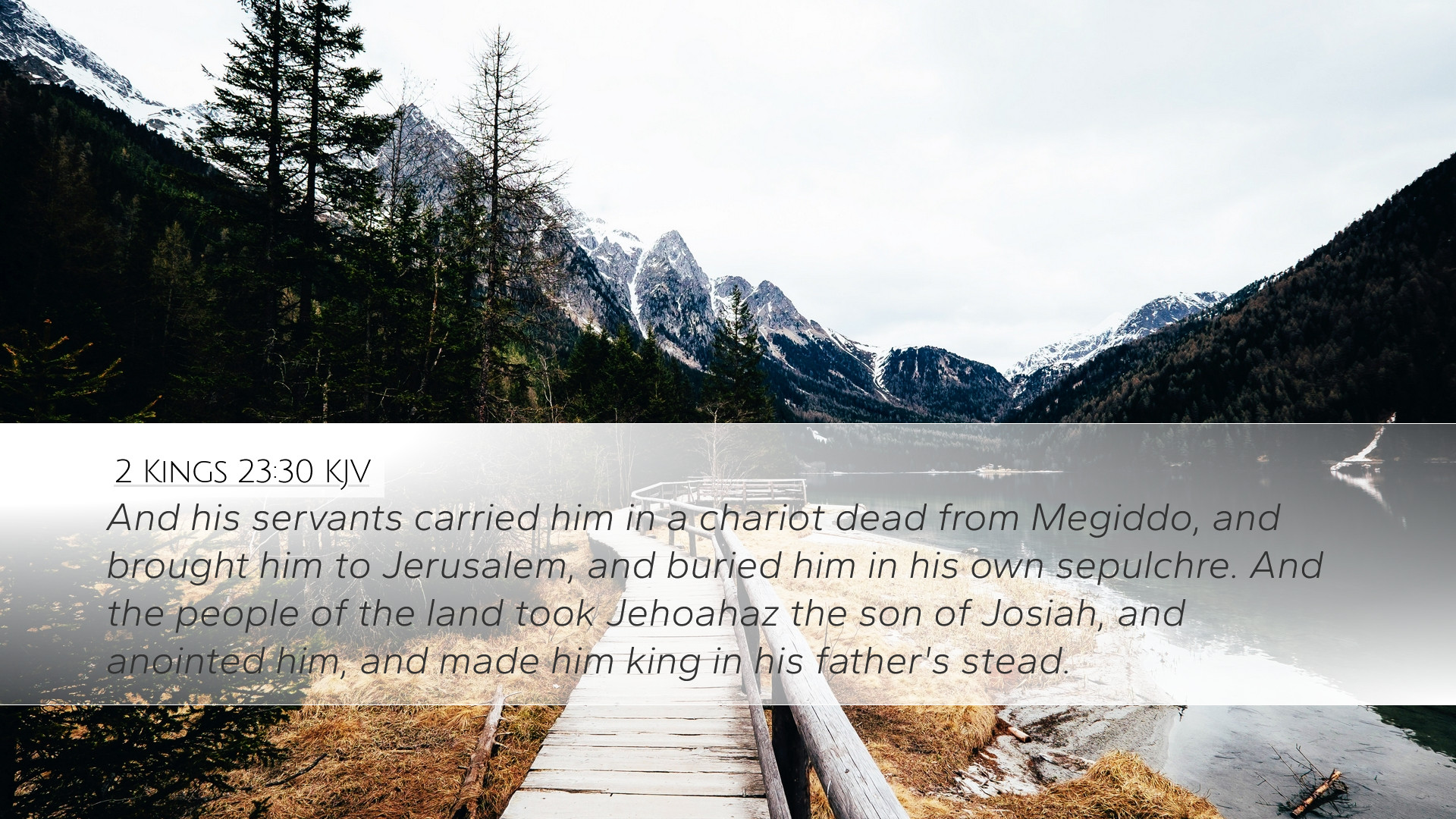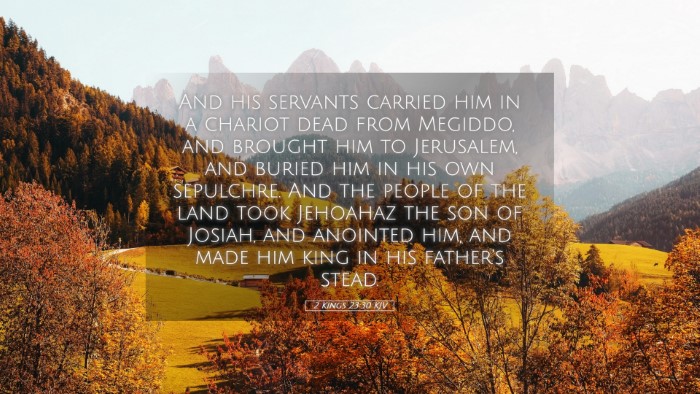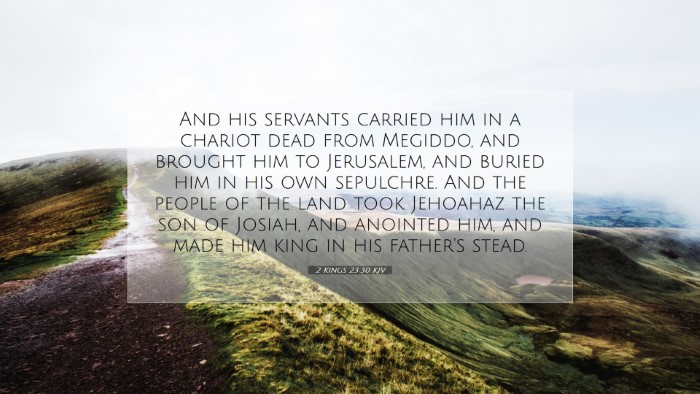Commentary on 2 Kings 23:30
Verse Context: 2 Kings 23:30 states, "And his servants carried him in a chariot dead from Megiddo, and brought him to Jerusalem, and buried him in his own sepulcher. And the land mourned for Josiah." This verse captures the end of King Josiah’s reign, a potent moment laden with significant historical and theological implications.
Overview of King Josiah's Reign
The reign of Josiah (640-609 BC) is notable for its religious reforms and return to the worship of Yahweh. He came to the throne as a boy and was known for his heartfelt restoration of the temple and the covenant laws, as highlighted in earlier chapters of 2 Kings. His death, however, came after an unfortunate battle at Megiddo against Pharaoh Necho of Egypt, resulting in his untimely demise.
Insights from Public Domain Commentaries
Matthew Henry
Henry emphasizes the tragic nature of Josiah's death, as it was perceived as a loss both for the kingdom and the faithful remnant of Israel. He notes that despite Josiah's righteousness—his attempt to cleanse the nation of idolatry and restore proper worship—he was ultimately flawed by his choice to confront Pharaoh Necho, which led to his downfall. Henry underscores that such a death serves as a stark reminder of the fragility of human judgment against divine providence.
Albert Barnes
Barnes offers a view on the historical implications and the mourning of the land. He suggests that Josiah’s death was met with profound grief, indicating that the people recognized the king not only as a sovereign but as a leader who sought to mend their relationship with God. An important element in Barnes's commentary is the notion of the communal sorrow that ensued; it reflects a symbolic connection of the people to their king. Their grief foretells the detrimental effects of his demise that would ensue in the years to follow, leading to the eventual destruction of Jerusalem.
Adam Clarke
Clarke takes a more analytical approach, examining the events that led to Josiah’s death and the aftermath. He critiques Josiah's decision to engage with Necho, arguing that it was not wise to intervene in matters that appeared to have divine sanction. For Clarke, Josiah’s commitment to reform was commendable but his untimely death served as a divine warning against overstepping God’s decree. Clarke highlights the return of the bodies from Megiddo and the emphasis on the mournful procession back to Jerusalem as indicative of Josiah's significance in the hearts of the people.
Theological Reflections
This narrative holds several theological reflections relevant for contemporary application:
- The Consequences of Obedience: Josiah’s life serves as an example of how obedience to God can lead to both reform and hostility within a corrupt political context.
- The Weight of Leadership: The lesson here emphasizes that leaders are often seen as representatives of divine favor or disfavor; the people’s reaction to Josiah’s death reflects the spiritual state of the nation.
- The Impermanence of Human Endeavors: Josiah’s proactive reforms were noble, yet they highlight the transient nature of leadership and the pending judgment of God that awaited the nation.
- Community Mourning: The deep sorrow experienced by the people signifies the collective aspect of faith; true leadership fosters community and unity in worship.
Historical Implications
The events surrounding Josiah's death are not simply historical footnotes; they underscore a critical turning point in Israel's history, leading to the eventual Babylonian exile. The loss of a godly king marked a decline that would be felt for generations to come. His faithful reforms would be quickly undone by subsequent rulers, leading to increased sin and disobedience among the people. This reflects a broader historical pattern of leadership and fidelity to God's covenant throughout the narrative of Israel.
Conclusion
2 Kings 23:30 is more than a mere account of Josiah’s death; it is a profound encapsulation of the relationship between leadership, divine guidance, and communal faith. The insights from commentators like Matthew Henry, Albert Barnes, and Adam Clarke provide a landscape through which one can appreciate Josiah’s legacy and the dire consequences of his absence. For pastors, students, theologians, and Bible scholars, this verse invites reflection on the nature of Godly leadership and the lasting impact one individual can have on a nation’s spiritual trajectory.


